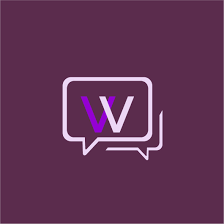
Toyota, Mercedes-Benz lead race for market share in Nigeria auto market
Towards the end of 2018, the Nigeria automotive industry received a boost following the signing of a Memorandum of Understanding (MoU) with the Volkswagen Group to develop joint vision for an automotive hub in the country.
Mr. Bisi Daniels, Strategy and Communications Adviser to the Minister of Industry, Trade and Investment, Mr Okechukwu Enelamah signed the MOU on behalf of Nigeria while the Head of the Sub-Saharan Region of Volkswagen, Thomas Schaefer, signed on behalf of the Volkswagen Group.
According to Enelamah, Volkswagen undertakes to implement a phased approach in relation to the assemblage of vehicles. He said this would start from assemblage of kits with the long-term view of establishing Nigeria as an automotive hub on the West Coast of Africa.
“This will include establishing a training academy in conjunction with the German Government which will train the initial employees. The academy will also provide broader technical training in automotive skills. It is also intended that a comprehensive Volkswagen vehicle and service network is developed in the country, subject to commercial viability,’’ he said.
The development was a major step forward for Nigeria’s auto industry which has been ranked as one of the fastest growing in Africa, with many major auto manufacturers now rushing to tap in on the growth opportunities in Nigeria.
Indeed, the Nigerian market has become the most sought after for car makers on the continent because of its huge market potentials. Sadly, the lack of good road network and low purchasing power caused by the recent economic contraction has impacted negatively on the volume of sales in recent times.
In the past, there were very few established car brands in the country and only a certain class of people were able to afford them. Over time, a lot has changed as there are now lots of car brands in the Nigerian market, with every individual who earns a decent income left with the opportunity to purchase a car.
Some facts and figures
According to the data released by the NBS last year, Nigeria has a total of 11,547,236 motor vehicles in the country, recording a 0.78% growth from the 11,458,370 vehicle population reported in the first quarter of 2017. This means, a total of 88,886 vehicles were bought between March 2017 and September 2017.
With an estimated population of 193.3 million, the data suggests that the total number of Nigerians available to one vehicle is 16.75. In terms of vehicles per 1000 Nigerians, it comes to about 59.7.
Private vehicle data in the country currently stands at about 4,656,725 or 40.33% of total vehicle population. The data also reveals that Nigeria has a total of 6,749,461 commercial vehicles which is about 58.4% of total vehicle population in the country.
Car brands in the Nigerian Market
Popular brands
The Japanese car brand, Toyota, is among the leading brands in the country, accounting for almost half of vehicles imported, and is very popular on Nigerian roads. Its best selling models include the Hilux and Corolla.
A global outlook shows that the Toyota automaker is the largest in the world, which sold around 10.4 million vehicles in the first quarter of this year. This is the largest number of sales in terms of global car sales. The company is also believed to be the most profitable carmaker worldwide.
Another brand that has come a long way is the South Korean brand, Kia. The brand has also improved on its design and engine capacity over time. According to car website, Carmudi, the Kia brand is another popular brand in Nigeria and is mostly used for official vehicles because of its affordability and fuel conservation. Over the years, the Kia models, Rio, Picanto, and Sportage SUV, have become choice vehicles among Nigerians.
Hyundai is another South Korean brand that continues to enjoy patronage from the Nigerian market, largely because of its designs and affordability.
Other brands, such as Nissan and Renault, continue to play on the fringes. For Nissan, it was quite a tale of woes under former handlers, Alliance Autos (CFAO Group), until the franchise was acquired by Stallion Motors under the company of Stallion Nissan Motor Nigeria. The Renault brand was also mismanaged by Alliance Autos Nigeria Ltd before Dana Motors and Services Ltd acquired the franchise in 2013.
However, while the Nissan brand continues to enjoy a massive injection of funds under Stallion to reposition the brand, the same cannot be said of Renault, as the brand continues to struggle in the Nigerian market.
Luxury brands in the market
In the luxury segment of the market, the German brand, Mercedes-Benz, remains the brand to beat with its revolutionary designs. Some of the popular models include C-Class, SUV ML63 AMG and the G-wagon. The brand is known for its durability, sleek designs, and the social status attached to its acquisition. Major buyers of the brand include top government officials, wealthy businessmen, and senior corporate executives.
Germany’s Mercedez Benz a division of Stuttgart-based car and truck maker Daimler manufactures luxury and crossover automobiles. Last year, its car division Mercedez Benz, had a total revenue of around 94.7 billion euros.
Other auto brands that dominate the luxury segment, include Porsche and BMW. The Porsche brand remains a car for the few rich in the society, although it is quite visible on the road, especially the Porsche Cayenne model.
Legacy brands (Peugeot and Volkswagen) have been kicked out
In the past, brands like Peugeot and Volkswagen were among the big players in the Nigerian market. However, Peugeot Automobile Nigeria (PAN), assemblers of the Peugeot brand in Nigeria, incorporated on December 15, 1972, ran into stormy waters after series of policy somersaults by the Nigerian Government (its major customer) and inadequate tariff protection for local assembly plants.
Laden with a huge debt of ₦30 billion by 2011 and no prospect of a private investor willing to risk his money in turning it around, the Asset Management Company of Nigeria (AMCON) acquired a controlling 80% shareholding and assumed board and management control in 2012. In 2016, AMCON invited prospective investors to bid for its 80% percent stake in Peugeot Automobile Nigeria.
The Volkswagen brand has also been unable to produce that ‘spark’ that made it the brand of choice in the 80s and early 90s. Its famous Beetle model has since died a natural death with the advent of sleek and trendy brands.




Comment
No comments found.